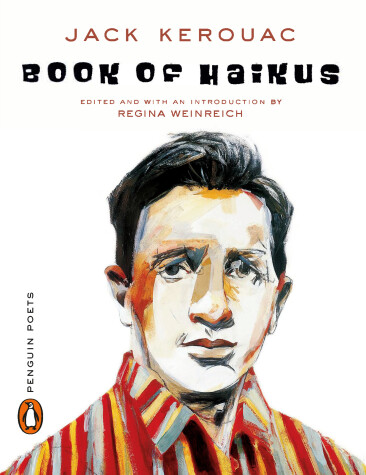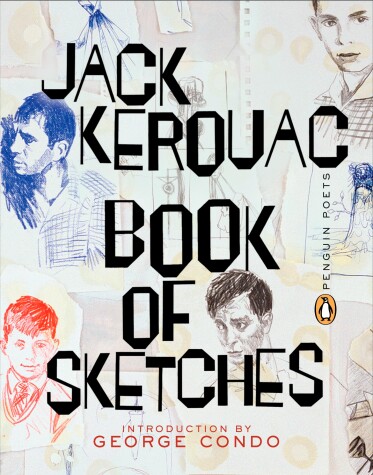Penguin Poets
3 total works
"In my system, the form of blues choruses is limited by the small page of the breastpocket notebook in which they are written, like the form of a set number of bars in a jazz blues chorus, and so sometimes the word-meaning can carry from one chorus into another, or not, just like the phrase-meaning can carry harmonically from one chorus to the other, or not, in jazz, so that, in these blues as in jazz, the form is determined by time, and by the musicians spontaneous phrasing & harmonizing with the beat of time as it waves & waves on by in measured choruses." Jack Kerouac
“Above all, a haiku must be very simple and free of all poetic trickery and make a little picture and yet be as airy and graceful as a Vivaldi pastorella.”—Jack Kerouac
Renowned for his groundbreaking Beat Generation novel On the Road, Jack Kerouac was also a master of the haiku, the three-line, seventeen-syllable Japanese poetic form. Following the tradition of Basho, Buson, Shiki, Issa, and other poets, Kerouac experimented with this centuries-old genre, taking it beyond strict syllable counts into what he believed was the form’s essence. He incorporated his “American” haiku in novels and in his correspondence, notebooks, journals, sketchbooks, and recordings.
In Book of Haikus, Kerouac scholar Regina Weinreich has supplemented a core haiku manuscript from Kerouac’s archives with a generous selection of the rest of his haiku, from both published and unpublished sources.
“Sketching . . . Everything activates in front of you in myriad profusion, you just have to purify your mind and let it pour the words and write with 100% personal honesty.”
In 1951, it was suggested to Jack Kerouac by his friend Ed White that he “sketch in the streets like a painter but with words.” In August of the following year, Kerouac began writing down prose poem “sketches” in small notebooks that he kept in the breast pockets of his shirts. For two years he recorded travels, observations, and meditations on art and life as he moved across America and down to Mexico and back. The poems are often strung together so that over the course of several of them, a little story—or travelogue—appears, complete in itself.
In 1957, Kerouac sat down with the fifteen handwritten sketch notebooks he had accumulated and typed them into a manuscript called Book of Sketches. Published for the first time, this work offers a detailed portrait of Kerouac at a key period of his literary career.


